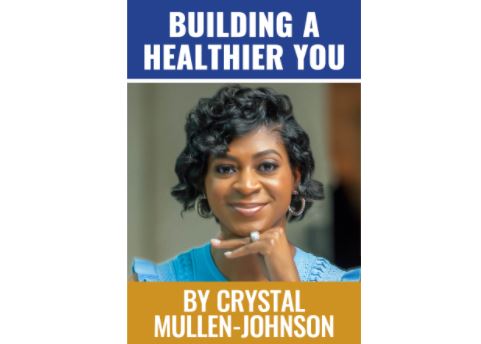By Crystal Mullen-Johnson
The Movember Foundation oversees charity events revolving around men’s health and for the month of November there is a special spotlight on men’s mental health, suicide prevention, prostate cancer, and testicular cancer. This month, the Movember Foundation is committed to providing awareness on these topics. Additionally, one of many events promoted by this foundation is men growing out their beards as a symbol of support towards the movement.
Studies show men are least likely to seek mental health counseling; are faced with challenges of acting tough, suppressing emotions, and maintaining a competitive spirit. Those challenges can be defeating and result in suicide and mental health problems.
According to the Centers for Disease Control and Prevention (CDC) between 1999 and 2017, the overall suicide rate in the United States increased 33 percent. Suicide is the second leading cause of death among Americans ages 10-34, and the fourth leading cause of death in the 35-54 age group. Men account for 75 percent of those deaths. Silence and shame of receiving mental health treatment is not the answer. Forming a support group, trusting in counseling, and normalizing talking about emotions can help men overcome barriers. Championing mental health provides strength, courage, and hope.
I am excited to help raise awareness about the importance of men’s health during Movember and am joined in this column with Drs. Hernando Carter and Michael Bivins and a 61-year-old survivor of prostate cancer Robert H. Young, Jr. However, rather than tell you about the importance of men’s health, I’d rather you hear it from them.
Mr. Young
What motivated you to get a prostate exam?
“My diagnosis was the result of an injury on the golf course. After the pain in my shoulder got worse, I went to my doctor for treatment. Since it was about time for my normal checkup, they ordered a complete blood package. It was then that he noticed my PSA (Prostate Specific Antigen – a laboratory test designed to determine the level of cancerous cells in the prostate) was elevated. At that point he referred me to Dr. Michael Bivins. After doing another blood test with elevated results he scheduled a biopsy which showed a positive result for prostate cancer. “The test for prostate cancer should be a normal part of the exam for all men over 40. Most men are afraid to have the prostate cancer test because of the fear of the aftereffects. The sexualized society in which we live raises the importance of sexual performance to an extreme level.”
What are some mental health challenges experienced after receiving a diagnosis of prostate cancer?
“Mentally, men have to accept that the prostate is a part of the body that has to remain as healthy as an arm or leg. There is still a strong stigma against mental health treatment in the Black community and an even stronger stigma among Black men. Black men still feel the burden of having to carry the world on their shoulders. Sharing problems has been, and still is, considered a sign of weakness among Black men. The idea of brothers working it out is noble, but unrealistic. Because of the emphasis on sexuality in our community it makes screening and treatment for prostate cancer harder for men to accept.”
Did you participate in therapy? If not, why didn’t you?
“I didn’t seek an individual therapist because my wife and I joined a prostate cancer support group at our doctor’s office. Prior to COVID we met the third Thursday of every month. It was very informative. Husbands and wives met and shared their prostate cancer journey. People were there from Stage 1 to Stage 4. Men shared their experiences with all types of treatment. Those who were newly diagnosed and still in a decision-making mode could come and hear the pros and cons of all treatments to help them make up their minds. For men with prostate cancer, I think this is the best kind of therapy. No one feels threatened and everyone feels the same. Prostate cancer affects everyone regardless of race, income, education, or any other separatist ideas we have.”
What are some words of wisdom you would like to share with men to promote men’s health?
“The best advice I can give other men about prostate cancer is to get tested annually. You owe it to your family. I wish other men who have been treated would speak up the way women do about breast cancer. Prostate cancer is one of the most treatable cancers around if it is diagnosed earlier. Men should talk about prostate cancer the way women spread news about breast cancer.”
Dr. Carter
Does mental health play a vital role in men’s physical health?
“Absolutely. Struggles with mental health can have a negative impact on physical health. For example, anxiety can cause blood pressure to rise, problems sleeping, and problems with the digestive system. We cannot ignore mental health and expect to have total wellness.”
Do you have choice words for men that are afraid of receiving a prostate exam?
“Get it done! Early detection will save your life.”
Do you have any wisdom how the mental health community and general partitioners can better help individuals that are fighting prostate cancer?
“Encourage them to be open and honest about their fears, concerns, questions, and apprehensions.
Dr. Bivins
What are the signs and symptoms of prostate cancer?
“There are approximately 250,000 diagnoses of prostate cancer annually. It is the most common solid cancer diagnosed and the second most common cancer death. There are approximately 4,500 men diagnosed yearly in the state of Alabama. Roughly, 1 in 8 men will be diagnosed with prostate cancer in their lifetime. Black men carry two times the risk of having a primary relative (brother or father) who has been diagnosed with prostate cancer. This puts a man at three times the risk of developing prostate cancer.
“Prostate cancer doesn’t have any signs or symptoms. It is also a slow growing cancer. Screening is critical to early detection and helps save lives. Prior to the 1990’s, men got diagnosed at a later stage of cancer. The introduction of the Prostate Specific Antigen (PSA) blood test, reduced the mortality rate because it allowed for early detection of prostate cancer.”
When should you start testing for prostate cancer?
“If you are an African American male or have a family history of prostate cancer testing should start at 40 years of age.”
What is a normal PSA test result?
“A normal PSA result is 2.5 or less. You should get tested for prostate cancer once a year. There are 18 percent to 20 percent of men with prostate cancer that will have a normal PSA, therefore in those situations, the Digital Rectum Exam (DRE) is the only way to detect prostate cancer.”
What are some of the barriers to testing for prostate cancer?
“Fear, misinformation, and education. Men are afraid of some of the complications of treatment, such as leakage of urine or the loss of their manhood. Treatments in the past were radical, unlike today where minimum invasive options offer better cure rates and less complications. Simply stated a man can get back to a normal lifestyle.
“Also, there are multiple options available for treatment. New surgical robotics technique can cure cancer better and minimum with complications.
For those patients that need treatment and don’t want surgery, newer radiation techniques can cure cancer with minimum side effects.
There are other minimal treatment options available, such as ultrasound waves, cryotherapy (freezing the prostate), and newer novel immunotherapy, which uses a person’s own immune system to treat their prostate cancer
Do you recommend mental health treatment?
“Urology Centers of Alabama (205-930-0920) believes in a holistic treatment approach. We want to treat the patient with cancer and not just the cancer.
Surgery is a life altering event and very impactful. Therapy doesn’t always come in the form of counseling. We have a man-to-man group that meets to discuss prostate cancer and things around it. It’s a platform to talk and listen. The group meets monthly to answer questions and generate conversation around this disease. It’s important to help educate the supporters of patients.
“If an element of depression occurs, medical doctors recommend therapeutics and therapy.
“I believe in a full comprehensive approach, which is inclusive of mental, spiritual, physical, nutritional, and psychological.
Where should patients who are uninsured go for screening?
“Urology Health Foundation provides free screenings to patients in the community that are uninsured. If you have an elevated PSA, doctors will take the uninsured through the process as they would to an insured patient.
Any closing comments?
“30 seconds saves lives; get your blood tested for prostate cancer.”
Crystal Mullen-Johnson is a Licensed Clinical Social Worker (LICSW-PIP) and a Registered Play Therapist in Birmingham, AL with more than 16 years of experience providing counseling. Strive Counseling Services, located in downtown Birmingham is a private practice offering therapeutic mental health services to children (play therapy), adolescents, and adults. Strive offers evidence-based therapeutic modalities such as Cognitive Behavioral Therapy (CBT). Contact us at (205) 721-9893 or www.strivebhm.com to inquire about our Telehealth Services.




